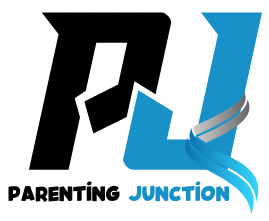When it comes to kids’ health, we often focus on food—but what they drink is just as important. Beverages can be a hidden source of excess sugar, empty calories, and even poor nutrition. Choosing the right drinks helps support your child’s growth, hydration, dental health, and energy levels.
This guide covers the best beverages for children of all ages and highlights which ones to avoid (or limit). Plus, you’ll get tips for transitioning from sugary drinks to healthier options your child will love.
Why Beverage Choices Matter for Kids
Beverages can either support or sabotage your child’s health. Many popular kids’ drinks:
- Contain high amounts of added sugars
- Lead to tooth decay and weight gain
- Displace more nutritious options like milk or water
According to the American Academy of Pediatrics (AAP), sugary drinks are a leading contributor to childhood obesity and type 2 diabetes. Making smart choices now builds lifelong healthy habits.
Source: https://raisingchildren.net.au/__data/assets/image/0017/53702/Dietary-guidelines-1-2-years-3.png
Best Beverages for Children
Here’s a breakdown of the healthiest drinks by age group and why they’re important.
- Water (Ages 1 and up) – The #1 Hydrator
- Benefits: Keeps kids hydrated without calories or sugar
- When to serve: All day, especially during meals, play, and warm weather
- Tip: Add cucumber, lemon, or strawberries for flavor without added sugar
- Breast Milk or Infant Formula (0–12 months)
- Benefits: Complete nutrition for infants
- Important: No other liquids needed in the first 6 months unless advised by a pediatrician
- Whole Milk (Ages 1–2)
- Benefits: Supports bone development with calcium and vitamin D
- Serving size: 2–3 cups a day
- Tip: After age 2, switch to low-fat or fat-free milk unless otherwise recommended
- Fortified Plant-Based Milks (If Dairy Is Not an Option)
- Good choices: Unsweetened soy milk (closest to cow’s milk nutritionally)
- Caution: Avoid rice milk (low protein) and flavored varieties high in sugar
- 100% Fruit Juice (Limit to Small Portions)
- Serving size: No more than 4 oz/day for toddlers, 4–6 oz for older kids
- Tip: Always serve with meals to reduce sugar spikes and protect teeth

Source: https://vaya.in/wp-content/uploads/2019/12/healthy-drinks-for-kids.jpg
Healthy Hydration Tips
Getting kids to drink more healthy fluids can be easy with the right strategy:
- Use fun cups or colorful water bottles
- Set a hydration schedule (e.g., after waking, before/after school)
- Offer water with meals and snacks
- Let kids add fruits or herbs to flavor their water naturally
Drinks to Limit or Avoid
Some beverages marketed to kids are better left off the menu—or reserved as rare treats. Here’s what to watch out for:
- Soda and Soft Drinks
- Problem: High in sugar, zero nutrients, linked to obesity and dental problems
- Fact: One can of soda can contain up to 10 teaspoons of sugar
- Fruit Drinks and “Fruit-Flavored” Beverages
- Examples: Capri Sun, Kool-Aid, Hi-C
- Problem: Often less than 10% real juice; packed with added sugars and dyes
- Sports and Energy Drinks
- Problem: High caffeine, sugar, and artificial ingredients
- Not for kids: Energy drinks are never appropriate for children
- Flavored Milk
- Example: Chocolate or strawberry milk
- Problem: Often contains added sugars
- Tip: Serve occasionally or make a healthier version at home with unsweetened cocoa and a small amount of honey
- Sweetened Plant Milks
- Problem: Some almond, oat, and soy milks have added sugars
- Tip: Always choose unsweetened and fortified options
How Much Should Kids Drink?
Hydration needs depend on age, activity, and climate. Here’s a general guide:
| Age Group | Recommended Water Intake |
| 1–3 years | 4 cups/day (mostly water & milk) |
| 4–8 years | 5 cups/day |
| 9–13 years | 7–8 cups/day |
| 14+ years | 8–11 cups/day |
Add more during hot weather or when your child is active or ill.
Fun and Healthy Drink Alternatives
Don’t want to serve plain water every time? Here are creative and nutritious alternatives:
- Fruit-Infused Water
Add slices of:
- Orange + mint
- Cucumber + lemon
- Strawberry + basil
- Coconut Water (Occasional Treat)
- Natural electrolytes, lower sugar than soda
- Choose unsweetened varieties
- Homemade Smoothies
- Blend fruits, leafy greens, and plain yogurt or milk
- Add chia seeds or oats for fiber and protein
- Herbal Iced Teas (Caffeine-Free)
- Try hibiscus, chamomile, or rooibos
- Serve cold with a splash of fruit juice
Tips for Transitioning from Sugary Drinks
If your child is hooked on juice or soda, here’s how to transition to healthier options:
- Dilute juice gradually with water
- Offer sparkling water with a splash of 100% juice
- Use rewards charts for drinking water
- Model good behavior by drinking water yourself
- Don’t keep sugary drinks at home—make healthy choices the only option
What Pediatricians Recommend
According to health authorities like the AAP and CDC:
- Water and milk should be the primary beverages for children
- Avoid giving juice to infants under 12 months
- Limit juice and eliminate soda, energy drinks, and sugary beverages
Always consult your child’s pediatrician if you’re unsure about appropriate drink choices based on health conditions, allergies, or dietary needs.
Final Thoughts: Sip Smarter, Grow Stronger
The drinks your child consumes can impact their mood, behavior, sleep, and long-term health. By focusing on hydrating, nutrient-rich beverages, you can help your child thrive—from toddlerhood to teenage years.
With a few smart swaps and a fun approach, healthy hydration can become a habit—not a hassle.





